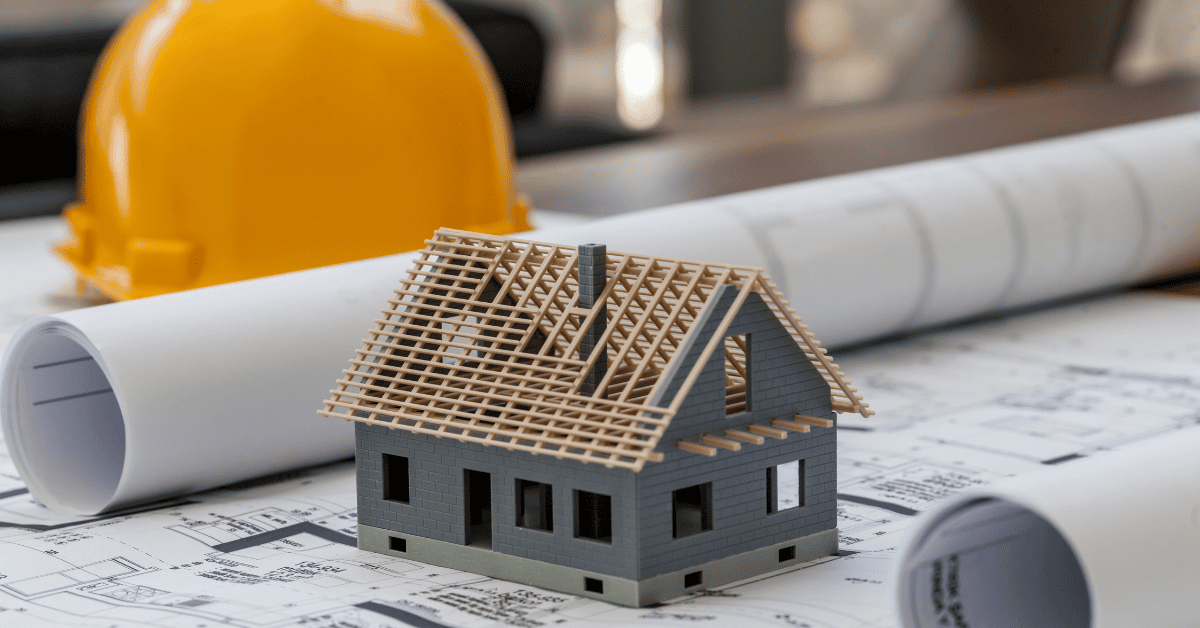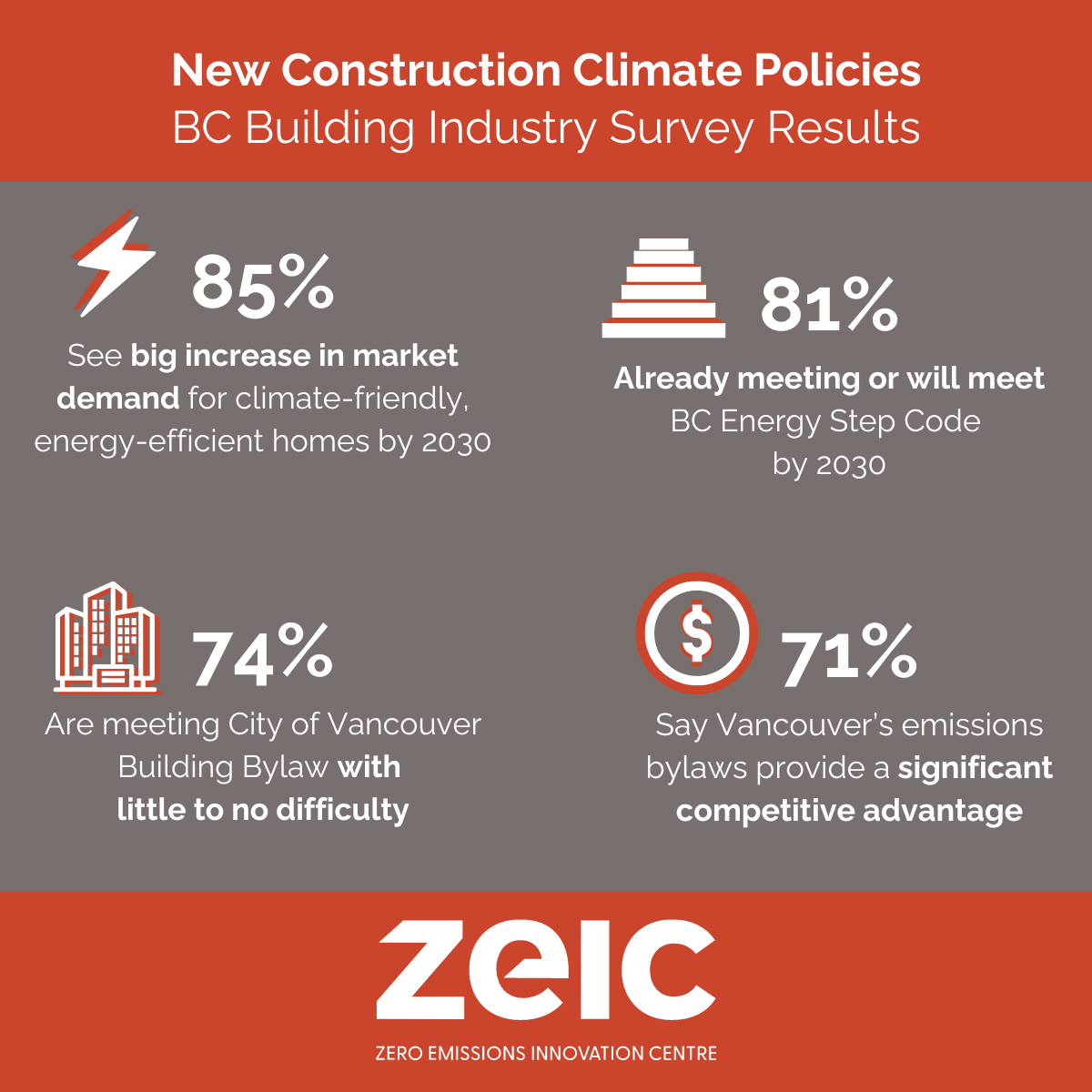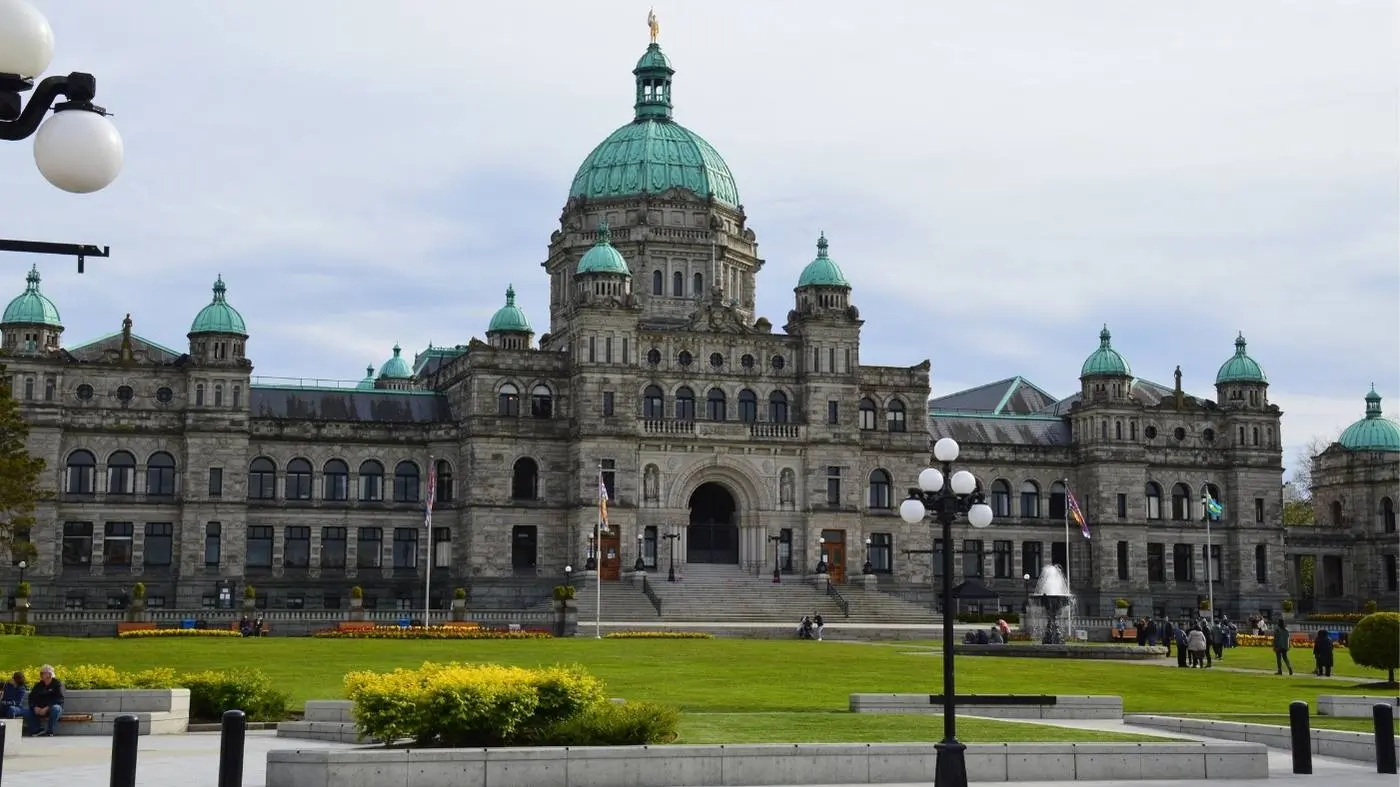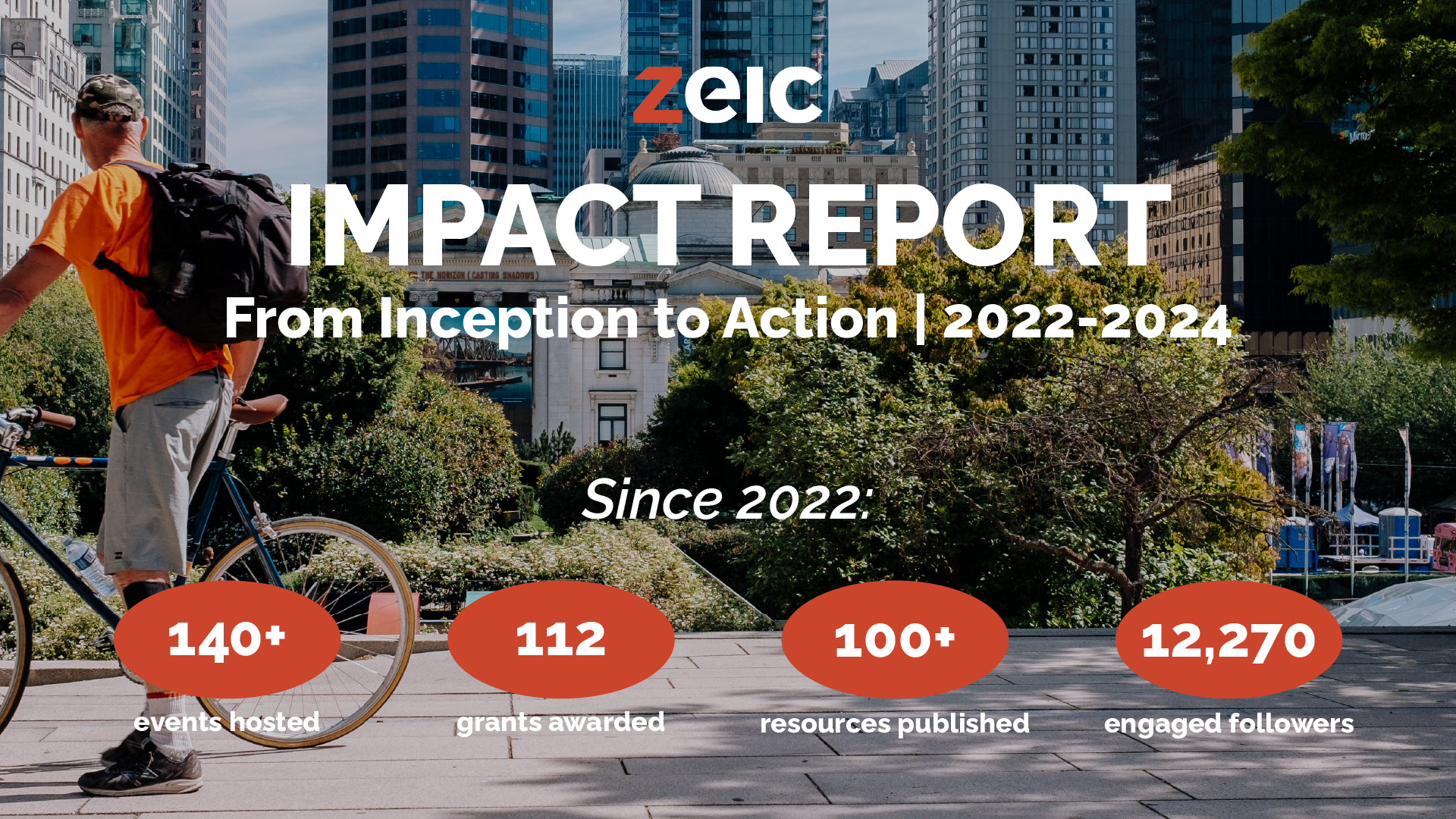
BC Retrofit Accelerator Launches to Kick-Start Energy Upgrades and Climate Action in BC Buildings
September 18, 2024
New Strata Energy Advisor Program Will Help Condos Go All-Electric
October 29, 2024Over 100 BC building industry members respond to survey, say they can meet energy and emissions requirements for new construction, see competitive advantage and increasing market demand for climate-friendly homes across the province.

The Zero Emissions Innovation Centre (ZEIC) has surveyed British Columbia’s building industry about its views on provincial and City of Vancouver climate and energy regulations for new housing construction.
These regulations include the province-wide Step Code (i.e., Energy Step Code and Zero Carbon Step Code) and the city-based Vancouver Building Bylaw that aim to improve energy efficiency and reduce emissions from buildings.
A total of 109 members of BC’s building industry, including housing development, construction, design, and supply chain firms, provided their input.
The survey results show a strong consensus that industry is either already meeting or will be able to meet provincial and City of Vancouver building energy regulations.
The results also show that these regulations are not materially driving increased construction costs or slowing down housing development.
Industry sees these policies as a competitive advantage, and that proposals to weaken regulations could lead to to higher emissions, regulatory uncertainty, less healthy buildings, and higher operational costs.
Respondents said they see considerable future demand for climate-friendly, energy-efficient new homes.
Key takeaways are below and full results are available in the report.

Quotes
“British Columbia’s building industry say they are stepping up to deliver on climate-friendly, energy-efficient new homes, which are seeing rapidly growing market demand,” says Roberto Pecora, Director at the Zero Emissions Innovation Centre. “Provincial and municipal climate policies for new buildings just aren’t significant contributors to added costs or slowdowns in housing development. To the contrary, proven technologies like electric heat pumps can lead to significant energy and costs savings for homeowners and building managers and occupants.”
“The results of this industry survey align with what we’ve been hearing from builders. Energy and emissions requirements are not significant drivers of new housing costs; many other factors affect project costs and timelines,” says Mark Bernhardt CEO of Bernhardt Contracting and President of Canadian Home Builders’ Association of BC. “Builders across the province have been clear—they need predictability and consistency from all levels of government. Long-term planning allows for innovation, investment, and training, while policy uncertainty limits options for home buyers and raises costs in both the short and long term.”
British Columbia
Province-wide Step Code (i.e., Energy Step Code and Zero Carbon Step Code)
- Eighty-one per cent of respondents say they are already meeting these requirements or are very confident that their firm will be able to meet these requirements by 2030.
- Energy efficiency and emissions requirements are not a significant driver of new housing costs nor do they materially affect the speed of housing development:
- Cost: borrowing costs and interest rates, land values, and development cost charges and levies were cited as the top three factors influencing the increasing cost of new housing development in BC.
- Speed: permitting time, skilled labour shortages, and supply chain issues were cited as the top three factors that influence the speed of construction of new housing development in BC.
- Conversely, energy efficiency and emissions requirements were identified as the least influential factors affecting new construction costs or the speed of housing deployment from a list of nine influencers.
- Eighty-five per cent of respondents foresee a major or moderate increase for the market demand for climate-friendly, energy-efficient homes with better indoor air quality will increase by 2030.
City of Vancouver
Vancouver Building Bylaw
- Seventy-four per cent of respondents said they have no difficulty or little difficulty in meeting the City of Vancouver’s energy efficiency and GHG bylaws for small and large buildings.
- Seventy-one per cent of respondents said the City of Vancouver’s leading emissions regulations/bylaws provided their business with a major or moderate competitive advantage.
- If the City of Vancouver’s bylaw amendment to allow for the use of natural gas space and water heating in new buildings is enacted (reversing a previous council decision):
- Ninety-seven per cent of respondents said the policy would definitely or likely lead to higher emissions from buildings.
- Seventy-seven per cent said the policy would definitely or likely lead to regulatory uncertainty for industry or their firm.
- Seventy-seven per cent said the policy will definitely or likely lead to less healthy buildings.
- Fifty-four per cent said the policy would definitely or likely lead to increased operational expenses for building occupants or operators.
Who completed the survey
Profile
- Housing developer (private, public or non-profit): 18
- Housing construction (general contractor, trades, etc.): 15
- Housing designer (architect, designer, consultant, engineer, etc.): 69
- Housing supply chain (manufacturers, suppliers, etc.): 7
Location of majority of projects (select all that apply)
- City of Vancouver: 83
- Metro Vancouver excluding City of Vancouver: 89
- Northern B.C.: 26
- Southern Interior: 44
- Vancouver Island: 63
- Other: 28
Average number of housing units built annually by developer/builder respondents: 150 units per year
Methodology
- Open to building industry members (housing developers, construction, designers, and supply chain) operating in British Columbia
- Survey in field from Sep. 26 – Oct. 8, 2024
- Administered online through the SurveyMonkey platform
- Survey participants were solicited through email invitation




